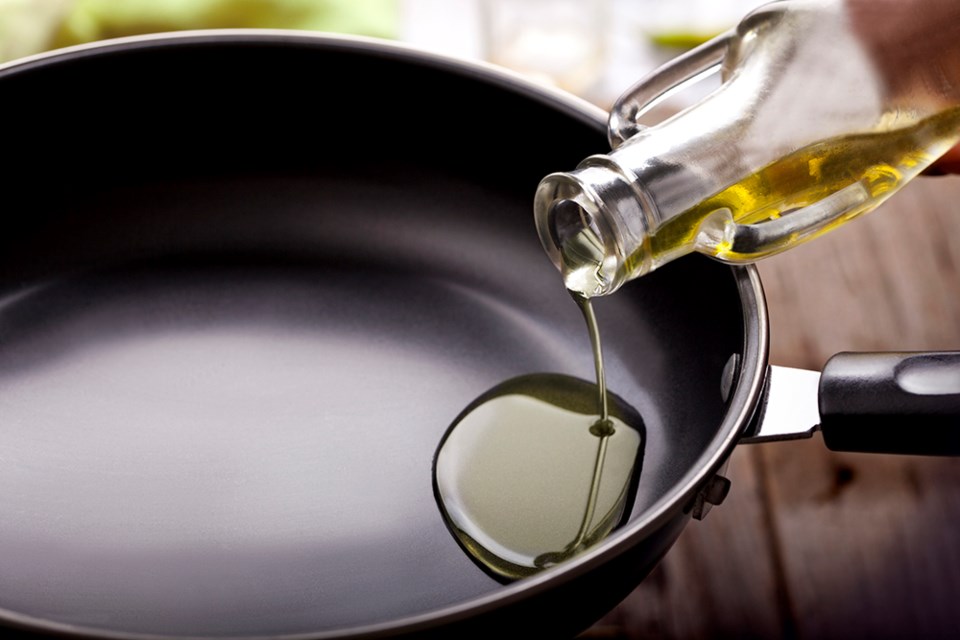Whatever your kitchen cleanup method is, we all love a tidy space to cook up a delicious feast or even a quick snack.
Whether you wait a few days, or clean as you go, we all get into habits of where we discard our so-called waste at the end of a meal. If yours involves putting fats, grease, or oils down the drain, you could be setting yourself up for a visit from the plumber.
Dairy products, dressings, pan drippings from meat and cooking oils all have the potential to clog pipes.
Flushing hot water, soap, or using a garburator won’t solve the challenges inherent in disposing of these fats down the drain. They all congeal eventually, and over time can narrow household pipes or cause expensive challenges for municipal wastewater systems. Damage caused by grease costs Metro Vancouver taxpayers $2.7 million every year, and this doesn’t include repairs to blocked residential pipes.
Most of us don’t create large amounts of fat, grease, or cooking oil discards at any one time. The best way to manage these is to soak them up in paper towels, newspaper, or paper napkins and discard them. In small amounts, these are perfectly acceptable in the compost, however, they can also attract bears and other critters. If this is a concern, the next best option is to take the soaked paper to the free compost drop off at the Town Centre Recycling Depot next to Rona in Powell River. The landfill is the next best option as we have no drop-off location for cooking oil currently.
If you are deep frying, then collect your larger amounts of oil in a can and dispose of these in the trash once they have congealed. Some restaurants that regularly generate large volumes of waste vegetable oils have local residents offering a pickup service. They use this byproduct to fuel their diesel vehicles, so they reduce visits to the gas station. This is a great example of so-called waste being transformed into a resource in a different context.
There are still many restaurants that do not have a pickup service, so if offering this is of interest to anyone, they can always approach the manager to enquire. Reliable pickup service is key, if you wish to keep a positive relationship with the provider of this resource.
Beyond this makeshift resource recovery of cooking oils, there are options for us to explore at the municipal level. You may have seen drop-off locations for waste vegetable oil during travels in the Lower Mainland or communities on Vancouver Island. Oil and grease rendering programs make collections using a heated truck that liquifies the contents. These are then converted into biodiesel, or can be added as an energy source into animal feed.
Until we have this local option, or other collectors surface, we can avoid straining our drains by choosing to compost or landfill instead.
Let’s Talk Trash is qathet Regional District’s waste-reduction education program.
Join the Peak's email list for the top headline right in your inbox Monday to Friday: prpeak.com/account/mailinglist.



